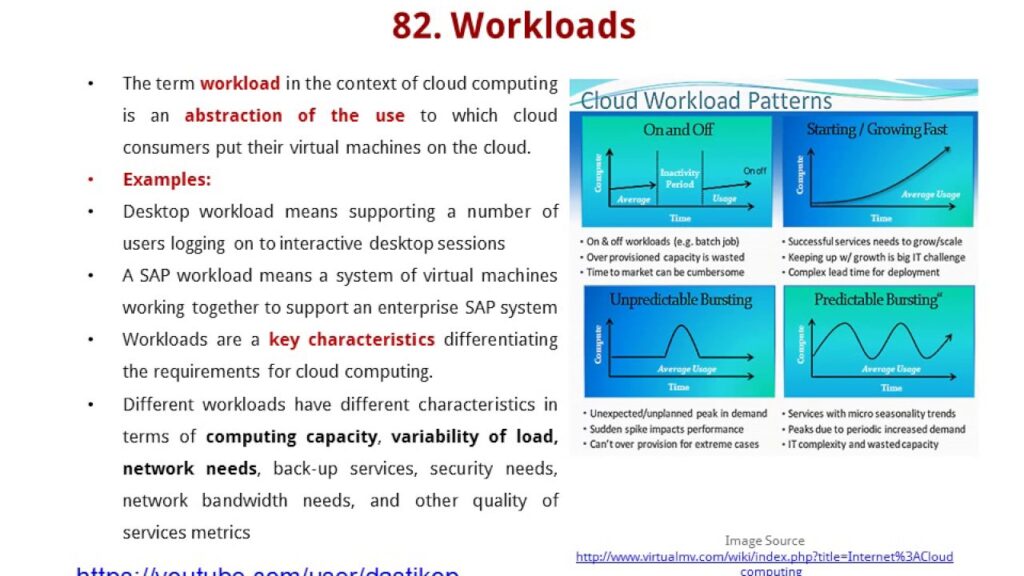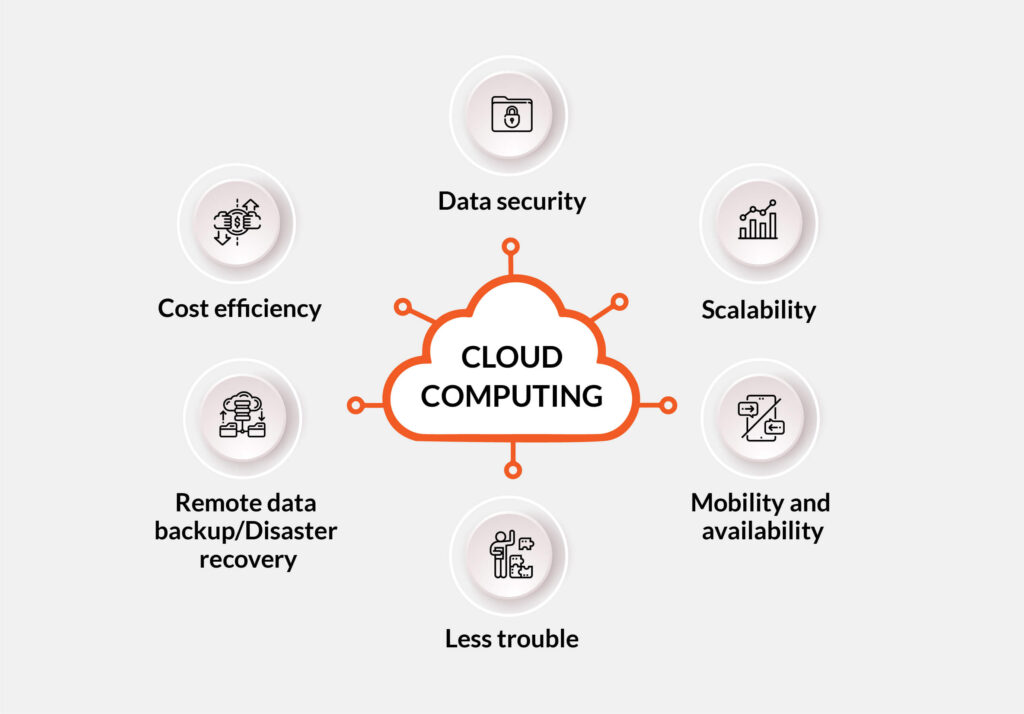As technology continues to evolve, cloud computing has become increasingly popular in recent years. With the ability to store and access data remotely, it has revolutionized the way we do business, communicate, and store information. As a professional writer, understanding cloud computing is crucial for staying competitive in the modern digital landscape.
There are numerous reasons why you might want to learn cloud computing. For one, it offers unparalleled flexibility and scalability, allowing businesses to expand and adapt to changing market conditions quickly. Additionally, cloud computing is cost-effective, eliminating the need for expensive hardware and infrastructure. Furthermore, cloud computing is more secure than traditional storage methods, with advanced encryption and security protocols to protect your data from cyber threats. Whether you are a business owner, writer, or IT professional, learning cloud computing can provide a significant advantage in your career.

Why Learn Cloud Computing?
Cloud computing is the process of storing, managing, and delivering data over the internet. It has revolutionized the way IT departments manage their data and applications. By using cloud computing, organizations can reduce costs, increase scalability, and improve their overall performance. In this article, we’ll discuss why it is important to learn cloud computing.
1. Cost Savings
One of the biggest advantages of cloud computing is cost savings. By using cloud computing, organizations can save money on hardware, software, and maintenance costs. Additionally, cloud computing can enable organizations to move from a capital expenditure model to an operational expenditure model, which can further reduce costs.
For example, Amazon Web Services (AWS) provides a pay-as-you-go model that enables organizations to pay only for the resources they use. This allows organizations to scale their resources up and down as needed, ensuring they are always using the right amount of resources. This can help organizations reduce costs by eliminating the need to purchase additional hardware or software.
2. Increased Scalability and Reliability
Cloud computing can also enable organizations to increase their scalability and reliability. By using cloud computing, organizations can easily scale their resources up or down as needed. This can enable organizations to quickly respond to changes in demand or to increase their capacity in order to meet their customer’s needs. Additionally, cloud computing can provide organizations with increased reliability by providing redundancy and failover capabilities.
For example, Amazon Web Services (AWS) provides a service called Auto Scaling which automatically adds or removes resources based on changes in demand. This allows organizations to quickly respond to changes in demand, while also ensuring they are always using the right amount of resources. Additionally, AWS provides a service called Elastic Load Balancing which distributes traffic across multiple instances to ensure maximum reliability.
3. Improved Performance
Cloud computing can also enable organizations to improve their performance. By using cloud computing, organizations can reduce latency and increase speeds. Additionally, cloud computing can enable organizations to use more powerful hardware and software without having to invest in additional infrastructure.
For example, Amazon Web Services (AWS) provides powerful services such as Amazon Elastic Compute Cloud (EC2) and Amazon Relational Database Service (RDS). These services provide organizations with access to powerful hardware and software that can enable them to quickly deploy applications and databases. Additionally, AWS provides services such as Amazon CloudFront which can help reduce latency and increase speeds.
4. Increased Security
Cloud computing can also enable organizations to increase their security. By using cloud computing, organizations can take advantage of the cloud provider’s security measures. Additionally, cloud computing can enable organizations to quickly and easily deploy security measures such as encryption and access control.
For example, Amazon Web Services (AWS) provides a service called Amazon Identity and Access Management (IAM) which allows organizations to control who has access to their resources. Additionally, AWS provides services such as Amazon Virtual Private Cloud (VPC) which provides organizations with a secure, isolated environment to host their applications and data.
5. Increased Agility
Cloud computing can also enable organizations to increase their agility. By using cloud computing, organizations can quickly and easily deploy and scale their applications and services. Additionally, cloud computing can enable organizations to quickly respond to changes in their environment or to new customer needs.
For example, Amazon Web Services (AWS) provides a service called Amazon Elastic Beanstalk which allows organizations to quickly deploy and manage their applications. Additionally, AWS provides a service called Amazon CloudFormation which allows organizations to quickly create, update, and delete resources as needed.
6. Environmental Benefits
Finally, cloud computing can provide organizations with environmental benefits. By using cloud computing, organizations can reduce their energy consumption and carbon footprint. Additionally, cloud computing can enable organizations to reduce their waste by eliminating the need to purchase additional hardware or software.
For example, Amazon Web Services (AWS) provides a service called Amazon EC2 Spot Instances which can reduce costs by up to 90%. Additionally, AWS provides a service called Amazon S3 which allows organizations to store data in the cloud, eliminating the need to purchase additional storage hardware or software.
Frequestly Asked Questions
Cloud computing is a technology that enables computing and storage of data over the internet. It is an increasingly popular technology for businesses of all sizes, and it’s important for IT professionals to understand the underlying principles and technologies.
Why do you want to learn cloud computing?
Learning cloud computing can help IT professionals to stay up to date with the latest technology trends. Cloud computing is a rapidly-evolving field, and it’s essential for IT professionals to understand the fundamentals of cloud computing and be able to use it to their advantage. By learning cloud computing, IT professionals can gain a better understanding of how cloud computing works, and how they can use it to increase efficiency and reduce costs.
Cloud computing also offers IT professionals the opportunity to increase their skill set and become more marketable in the job market. As the cloud computing industry continues to grow, employers are increasingly looking for IT professionals who are knowledgeable about cloud computing and can use it to their advantage. Learning cloud computing can help IT professionals to be more competitive in the job market.

Why Should You Learn Cloud Computing? | Great Lakes PG Program | Great Learning
In conclusion, the benefits of learning cloud computing are vast and undeniable. It allows individuals and organizations to store and access data with ease, improve their efficiency, and reduce costs. As the world continues to shift towards digitalization, cloud computing has become an integral part of every industry, making it a valuable skill for anyone looking to advance their career.
Moreover, learning cloud computing provides individuals with the opportunity to stay ahead of the curve and remain competitive in the job market. As businesses continue to rely on cloud services to streamline their operations, those who possess the necessary skills and knowledge will be highly sought after. Therefore, whether you are a student, a professional, or an entrepreneur, learning cloud computing is a wise investment in your future. It enables you to adapt to the ever-changing technological landscape and remain relevant in the digital age.



